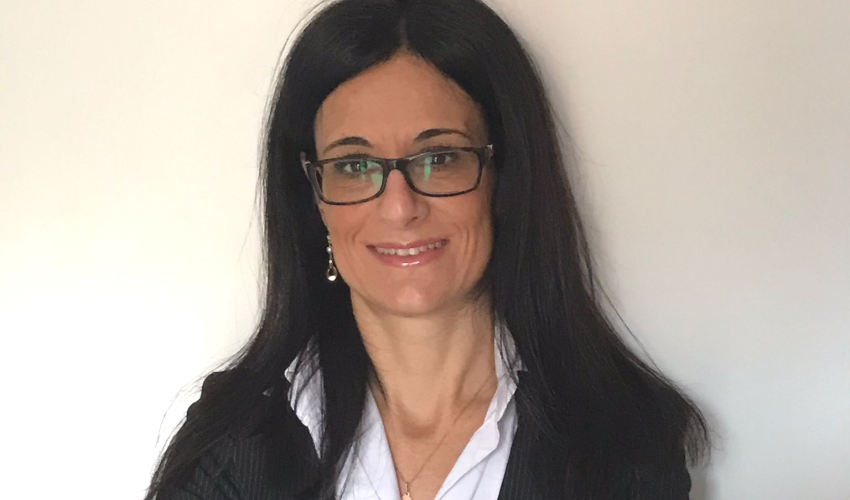
Make that head move
AMONG THE MOST SOUGHTAFTER SOFT SKILLS AT THE TIME OF HIRING, CRITICAL THINKING IS FUNDAMENTAL IN CONSULTING, EXPLAINS THE ALUMNA TIZIANA BRKAN, PARTNER AT DELOITTE BUSINESS SOLUTIONS. TEAMWORK, CURIOSITY AND THE HABIT OF CONFRONTING COMPLEXITY ARE THE WAYS TO LEARN ITCritical thinking. An important skill in every aspect of our professional life, but which becomes a key element when you need to talk about the numbers of a company and draw conclusions, as in the case of consulting. Tiziana Brkan is convinced of this. She graduated in Administration, Finance and Control from Bocconi in 2002, and is now a partner of Deloitte Business Solutions (the arm of the group that deals with providing services to the finance world or a company’s CFO office). "It is more decisive than specific technical skills," explains the alumna, who at Deloitte is responsible for accounting and bookkeeping services.
How important is critical spirit in the consulting business?
Very very important. Through study you learn accounting principles, but these must then always be interpreted to move from theory to practice, analyzing the case and the context within which they will be placed. In real and professional life, things are not only black and white. Only by applying critical thinking, that is, the ability to analyze the data and ask the right questions, can a situation and the context of reference be fully understood. For us it is essential to provide a truly personalized consultancy service in line with the client’s needs. In short, critical thinking is what makes the difference between a standard service and an excellent and innovative approach.
Is this also what you look for at the time of hiring?
The focus is more on these soft skills, compared to bare and raw skills. The consultant must always reinvent himself, every time. Since each customer is a case in itself, the methodology must be calibrated for each individual project. What you did in a previous project may not be good for the next, even if the first was a success.
Can critical thinking be trained in companies?
Yes. On the one hand, it is connected to the spirit of competition that for better or worse is intrinsic in societies like ours; on the other hand, however, you can with teamwork, with continuous debate, with tutoring and stewardship. And then you need a lot of curiosity and a desire to make a difference.
How do you judge the new generation in terms of critical ability?
I don't always see them curious or “hungry”, as Steve Jobs would say. I notice that sometimes they need to follow a pattern, even though they think the pattern restricts them. They ask for rules and procedures, but perhaps, if you ask them to do something according to a certain logic, they experience it as a brake on their creativity. They can’t always accept that sometimes companies like ours must necessarily follow procedures to limit risks and exposure to responsibility. Above all, the youngsters have to ask themselves questions, understand why they are doing a certain activity or analysis. And they have to ask, if they are not convinced or have not understood. It may be that, in not doing so, there is also a psychological component.
What do you mean?
The fear of exposing oneself, the difficulty of expressing what they think in a professional environment. It is precisely on this that companies like ours are working a lot: in strengthening the awareness of freedom of expression, diversity, inclusion. A sign that perhaps in companies people find it difficult to express their opinion, also for fear of repercussions on their career.
In light of all this, in your opinion is the teaching of critical thinking useful in schools and universities?
Absolutely yes, schools must increasingly facilitate entry into the world of work, and the institutions that adapt first are the ones where it will be easier for the new managers of tomorrow to be born. Practical exercises, moments of corporate participation, team building are just some of the activities to focus on and that allow this new generation to express their comments not only on social networks, but with real dialogue, accepting criticism in a constructive way, if necessary.
Biography
Tiziana Brkan, who graduated in AFC in 2002 from Bocconi with a thesis on football balance sheets, developed her entire professional career in the field of consultancy, first in Arthur Andersen Consuting, then moved to Deloitte. Of the years in Bocconi she remembers in particular the courses of Professor Amigoni and "the method, but above all that everyone was given an opportunity, and the organization of lessons and exam sessions, which also allowed those who were already working, as I was, to be able to follow them. "And how can we forget "the entrance and the legendary Bocconi lions "?
by Andrea Celauro
